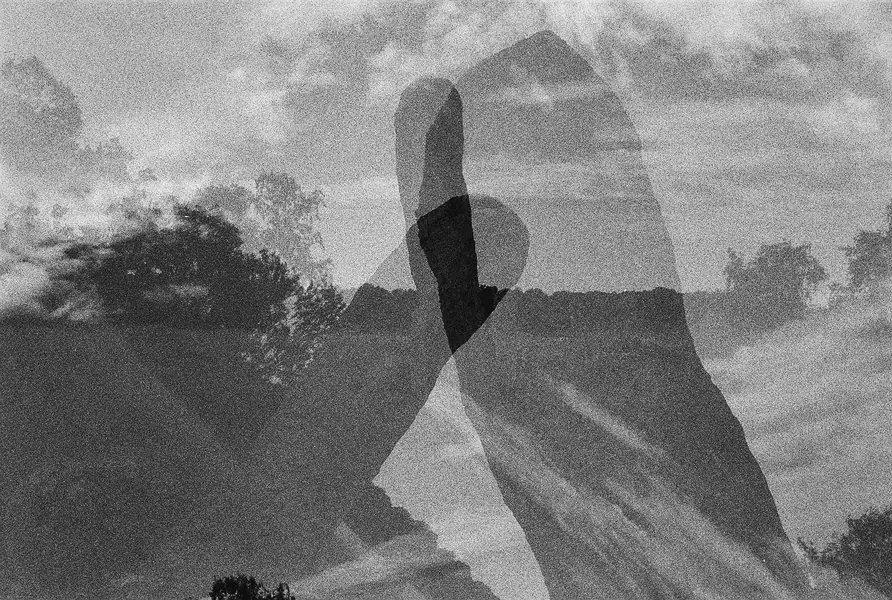

A formally experimental lyric journal in a state of continuous flux. Written from my home on Sofie’s Mountain, Sweden, with occasional diversions to London, UK. Texts accompanied by analog multiple exposure photographs.
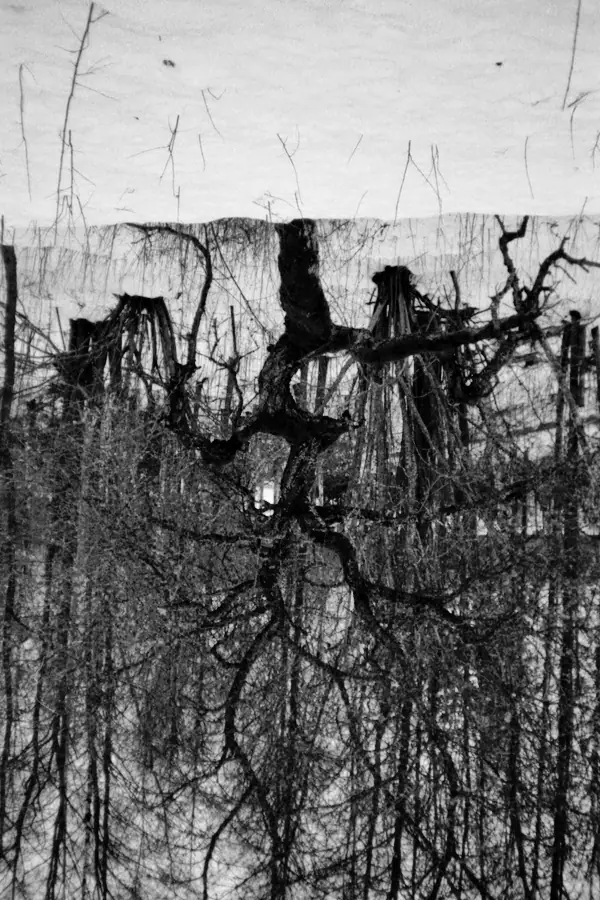
A land covered in darkness. A land grown over with swarths, swards, swads. Remnants of yellow rattle and foxglove beardtongue haunting the meadow, the leasow, the mædsplott, suppressed by tussocky matt. Thistle, nettle, ragwort. Half-buried a broke plough gone to moss and mildew. A ghost pasture. A farmland gone fallow decades prior. The family hung on longer than most. Mosaic ecologies becoming bramble, scrub and tree.
Rough stuff that wears down wildflowers.
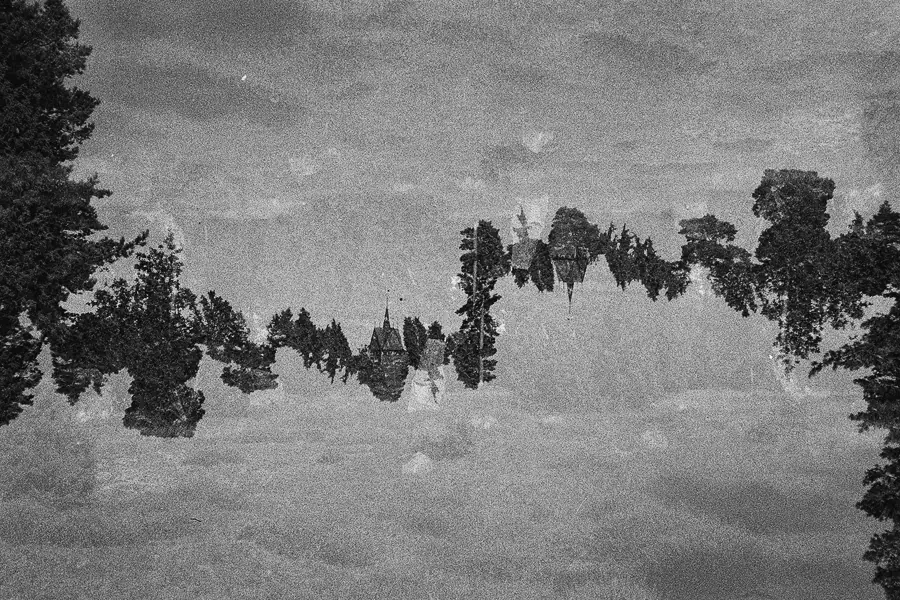
Abbey
Asceticism
Atop
Attic
Bark
Beam
Beardtongue
Best
Between
Bibles
Black
Blanket
Blooming
Body
Bogs
Bones
Bordered
Burial
By
Catch-cold
Cells
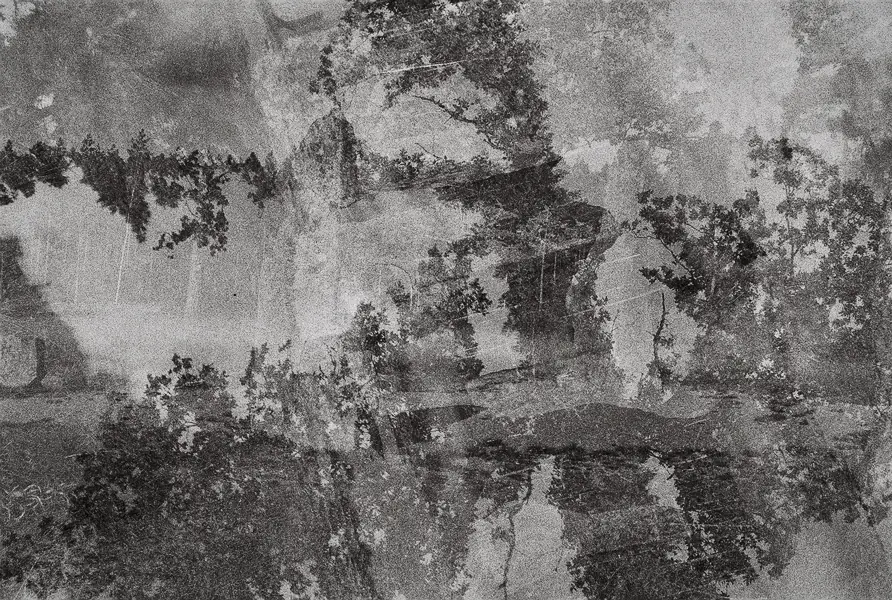
I sit beneath the shadiest tree in Peckham Rye Park
Oak canopy reaching twenty metres in diameter
Full leaf boughs ornamented with noisy parakeets
I’m dressed all in black despite the sun
Across the lawn three generations of friends and family chatter in contact fusion, barbecuing beef and catfish in sticky brown glazes
Everyone marinating together in the fragrant smoke
I watch as X____ stretches her arms around the two-hundred-year-thick trunk, enveloping as much of the knotted stem as she can
Blackberry lips reflected in the fridge-freezer section. Our something at first sight superimposed over a packet of tofu. A dozen oranges tumbling down the market aisle. A tributary of citrus orbs confluxing with a delicate phalanx of phalanges. The performance of her femur and pelvis in orchestration with these appendages. Bending and scooping. Flexing. Extending. Rotating. The fruits passed in sleight from hand to hand.
Heat ripples from the dewy skirts around the burst of ornamental beds
Azalea, magnolia, rhododendron
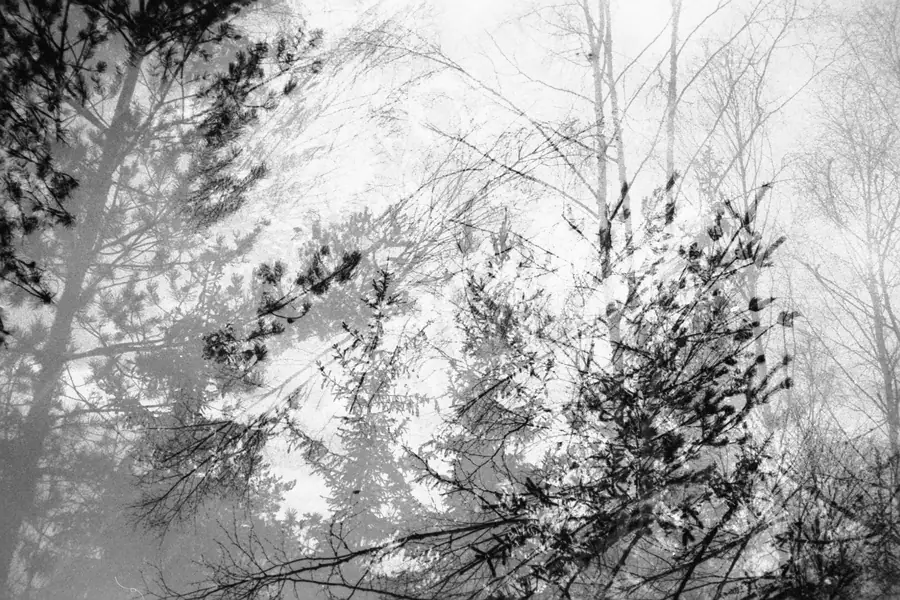
Fired soils crack as ancient stoneware. Amputated boughs slump to heat-kissed orchard, pale dirt. Each day another scorched earth policy. The garden blooms its pallid clumps. An open wound of chronic maladies. At least the rugged weeds in fervour and by god the all fermenting stench. You shrug off blistered skin but
Words cannot convey your faith in ruins.
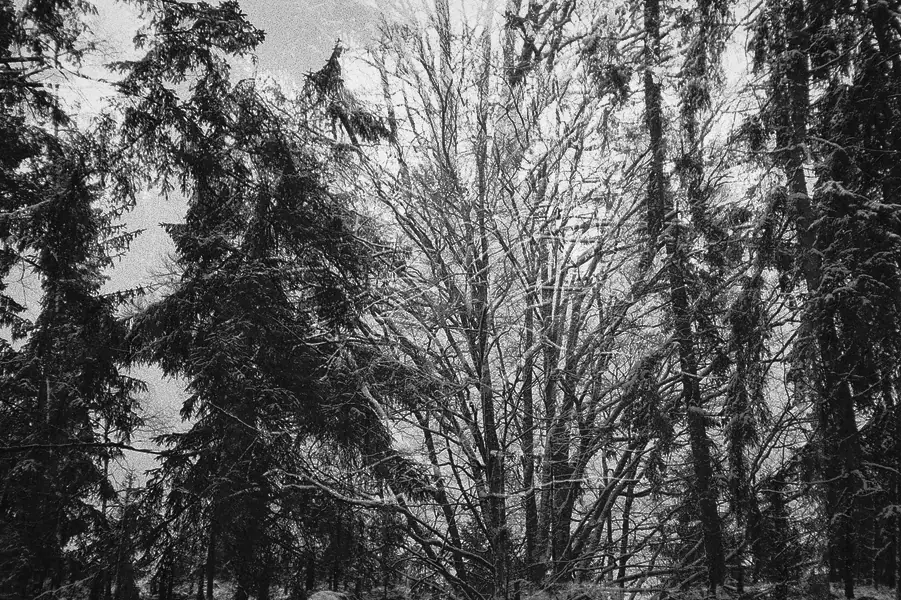
but mor cess, and reeds, and hillocks, I write
what spell with vengeance a colossal blooming
body no room or spans, swards, swads, remnants
in sparks, Bluebell held every bough like appendages
bending oaks, bramble, scrub and blossom, swatting
black stealth fungus shaped by irritable fingertips,
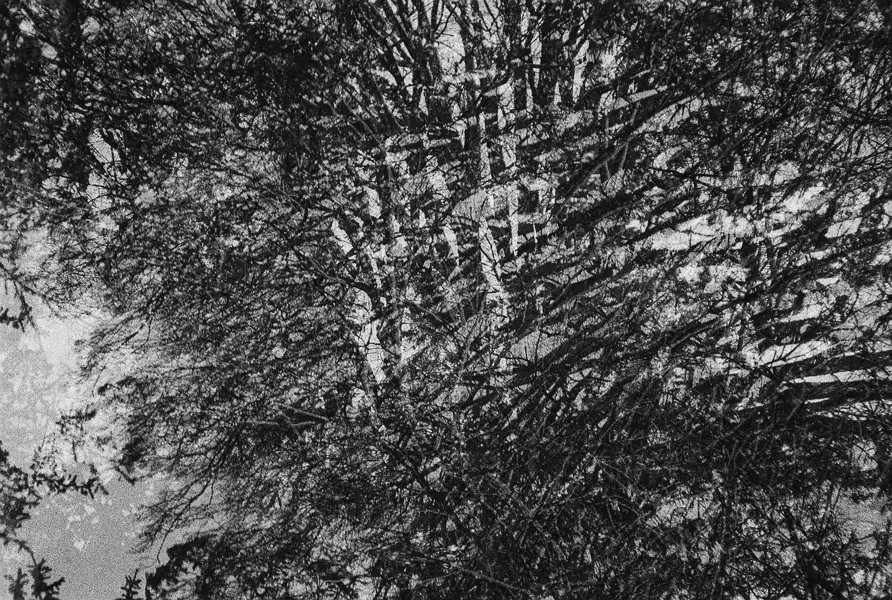
Steady rains pass the Equinox. Turning soggy firth and fold. Bent bunch-grass and windlestraw matt the wooded edges spared the scythe. Fae fog-drifts over lowlands.
